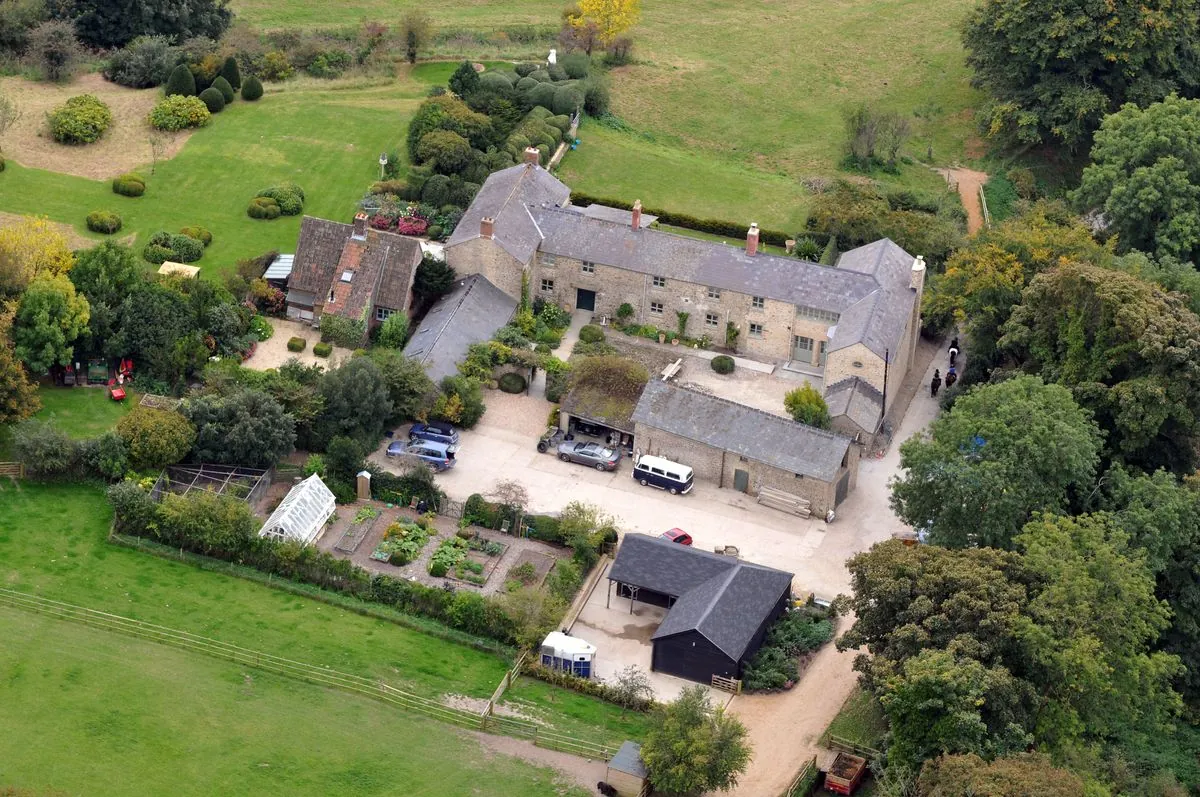Martin Clunes has encountered a setback in his ongoing dispute over a proposed traveller site near his £5 million farmhouse in Dorset. The actor, best known for his role in the TV series "Doc Martin", has been embroiled in a two-year conflict with individuals he describes as "festival-going roadies" rather than genuine travellers.
Beaminster town council, located in the picturesque West Dorset region, has recommended the approval of plans to convert a static caravan into a private residential traveller site. This caravan, situated approximately 300 feet from Clunes' 130-acre farm, has been at the center of the controversy.
In response to the council's decision, Clunes reportedly engaged a prominent barrister and submitted multiple letters of protest to the planning portal. This swift action underscores the actor's determination to challenge the proposed development.
The individuals at the heart of this dispute, Theo Langton and his partner Ruth McGill, have resided in the 45ft by 16ft static caravan since 2002. Their living conditions are basic, lacking running water and electricity. In 2015, the council granted them a five-year temporary license for the site, but they have continued to live there without legal permission since its expiration.
The planning application, submitted in 2022, seeks permanent use of the land as a private residential traveller site. The proposed development includes one mobile home, one touring caravan, a mobile van, and a barn intended to serve as a "dayroom/workshop/store".
Clunes and his wife, Philippa Braithwaite, a TV producer, purchased Higher Meerhay farm near Beaminster for £3 million in 2007. Interestingly, they bought the property from Mr. Langton's mother, Georgia Langton, establishing a complex connection between the parties involved.
The legal argument against granting traveller status to Langton and McGill has been presented by John Steel KC, representing Clunes and Braithwaite. Steel contends that there is no evidence of a nomadic lifestyle, describing the couple instead as "roadies, caterers, people who sell goods on stands at events including craftsmen and artists". This distinction is crucial, as traveller status would strengthen the couple's position with the council, which has obligations to provide sites for recognized travellers.
"Theo Langton has received high-quality private education including to secondary school level at Bryanston School and it is not as if he is incapable of spending time and effort to seek an alternative, more appropriate site."
Clunes argues that the site lacks basic services necessary for permanent residential occupation and is unsuitable for a traveller site given its location within the Dorset Area of Outstanding Natural Beauty (AONB). This designation, introduced in England in 1949, aims to protect and enhance the natural beauty of specific landscapes.
The dispute highlights several complex issues, including rural housing affordability, the rights of traveller communities, and the challenges of balancing development with environmental protection. It also reflects broader trends such as rural gentrification and the decline in authorized traveller sites across the UK.
As the case progresses, it underscores the potential long-lasting impacts of planning decisions on local communities and landscapes. The Dorset County Council is expected to consider Mr. Langton's planning application in October 2024, marking the next crucial step in this ongoing controversy.
